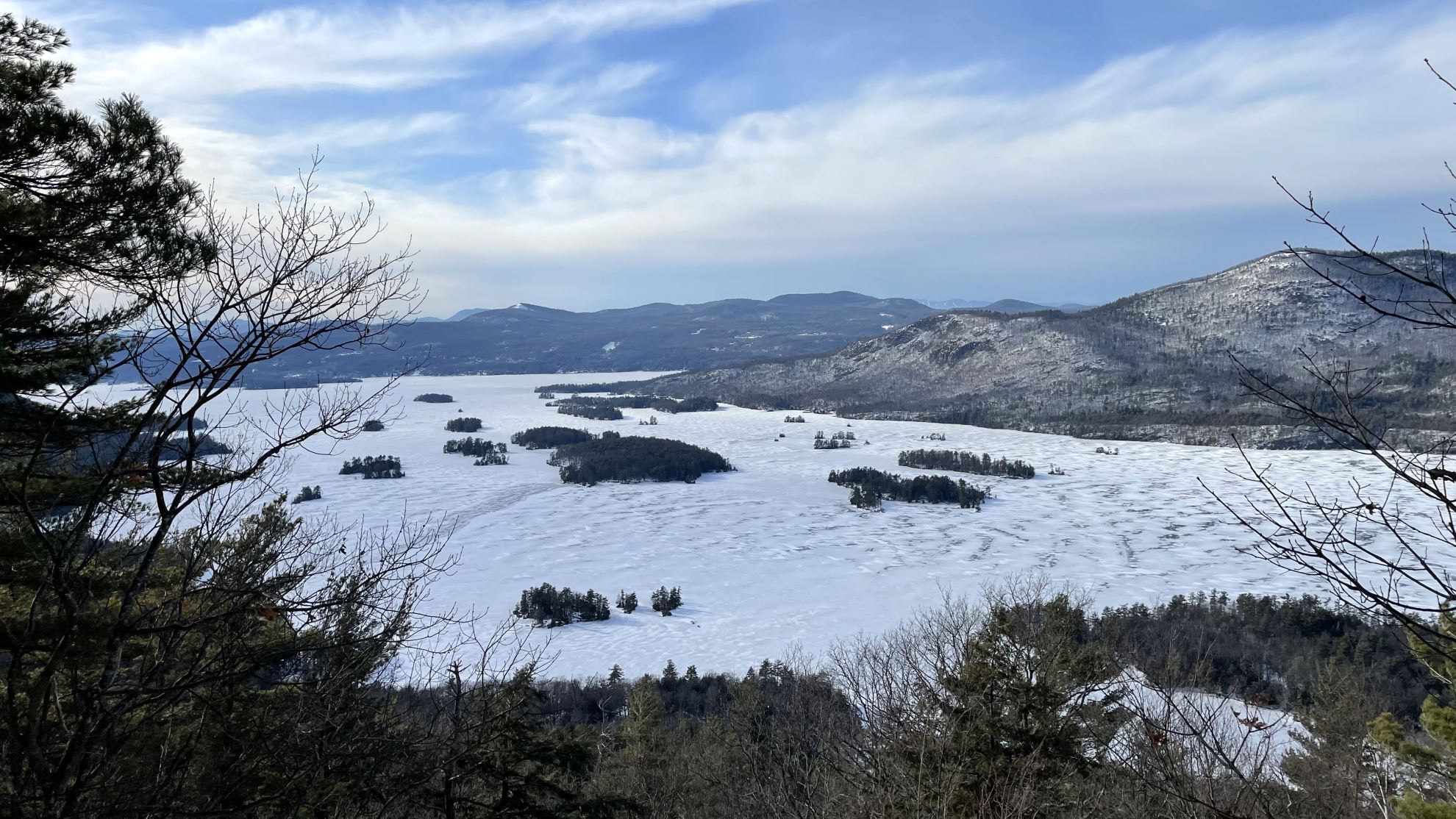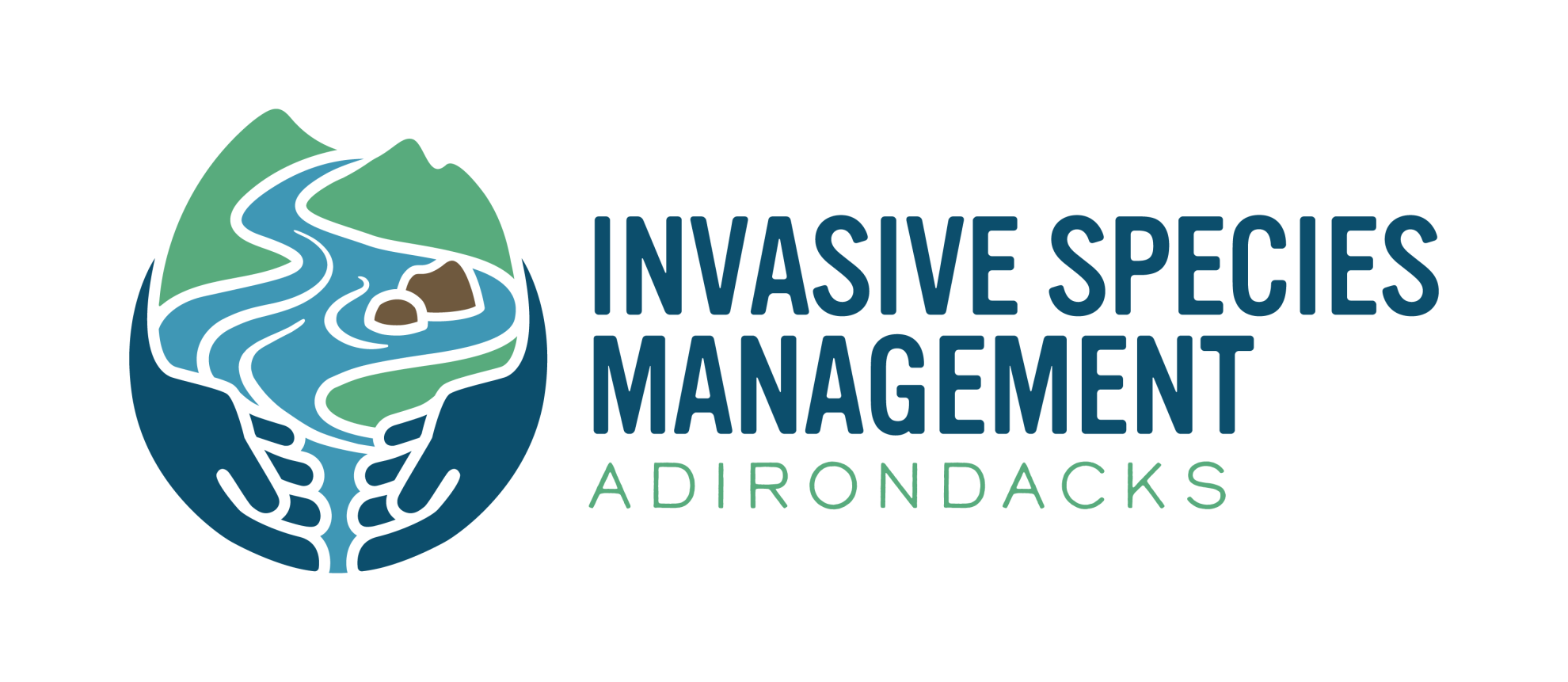Volunteer Forest Pest Hunters Make a Difference in Fight Against Invasives

Volunteer Forest Pest Hunters Make a Difference in Fight Against Invasives
Forest Pest Hunters training is Jan. 24, three field trips will follow in February and March
ADIRONDACKS – Forest Pest Hunter volunteer Bill Widrig has reported more than 300 forest pest survey observations, and he isn’t done yet.
Widrig was among the first to join the Adirondack Park Invasive Plant Program’s Forest Pest Hunters effort when it began in 2021.
“Our property on the lake has old growth hemlock, some over 200 years old, that are very special to us,” Widrig said. “As hemlock woolly adelgid is a threat to these trees and all other hemlocks in the Northeast, I felt that I could not in good conscience just stand by and do nothing to help stop the spread of this pest.”
Hemlock woolly adelgid (HWA)—an invasive insect that lays its white, woolly egg sacks on the underside of hemlock needles—was first confirmed in New York state in 1985 and in the Adirondacks in 2017. In fall and winter, the invasive adelgids feed on young hemlock twig tissue, typically killing the tree within 10 years.
Hemlocks are an integral component of Adirondack ecosystems. To help protect them, APIPP regularly teams up with other organizations to train Forest Pest Hunter volunteers how to identify and report HWA and other forest pests.
The first Forest Pest Hunters training of 2023 will focus on HWA and be held online from 10-11:30 a.m. on Jan. 24. It will feature speakers from APIPP, New York State Hemlock Initiative, Adirondack Mountain Club, iMapInvasives and the Capital Region Partnership for Regional Invasive Species Management.
Since the program’s inception in 2021, Forest Pest Hunter volunteers have logged 550 invasive species reports into iMapInvasives, New York state’s online invasive species database. Of those reports, Widrig has entered more than 250 non-detects and 30 positive HWA sightings. Last fall he also entered more than 40 non-detects for beech leaf disease, an invasive forest pathogen that was first confirmed in Herkimer County in 2022.
APIPP Terrestrial Invasive Species Project Coordinator Becca Bernacki explained that non-detects—that is, surveys in which no invasive species are found—are just as important as positive sightings because they help scientists and invasive species managers see the big picture.
“Non-detects are vital to our understanding of the distribution of invasive species, allowing us to better target both survey and management activities,” Bernacki said.
Bernacki added that volunteers are essential to helping organizations like APIPP manage invasive species.
“The Adirondack region is huge, and it’s impossible for us to be everywhere,” Bernacki said. “Having volunteers like Bill out there means more eyes on the ground and more occurrences of invasive species being reported. APIPP simply wouldn’t be as effective as it is if there weren’t so many dedicated community scientists surveying forests.”
Widrig doesn’t always conduct surveys alone. He has recruited his wife and children to help him, and he said that any amount of time a person can contribute—a day, half a day, or a couple of hours—makes a difference.
Widrig said there are other perks, too. The exercise is great, and surveying for invasives has helped him discover hidden locations he might not have otherwise found.
“I often find myself working adjacent to a trail or off-trail while surveying,” Widrig said. “In doing that I’d say I’ve had the chance to see vistas, viewpoints, rock outcrops, streams, and impressively large trees in a way that you don’t typically get while hiking. Many of those instances are memorable to me.”
The “Adirondack Forest Pest Hunters—Surveying for HWA Winter 2023 Training” webinar is 10-11:30 a.m. on Jan. 24. To register visit www.adkinvasives.com/Events/Detail/163
Three HWA field trips, co-sponsored by APIPP, will follow the webinar in early February for people to practice their newly-learned survey and reporting skills in the field. Champlain Area Trails will co-sponsor a field trip at 10 a.m. on March 4 on the Black Kettle Trail in Willsboro. The Ausable River Association will co-sponsor a field trip from 10 a.m. to noon on Feb. 16, starting at the Owen Pond trailhead in Wilmington. The Lake George Land Conservancy and Adirondack Mountain Club will co-sponsor a field trip from 10:00 a.m. to noon on March 11 at Hearthstone Point Campground in Lake George.
APIPP’s mission is to work in partnership to minimize the impact of invasive species on the Adirondack region’s communities, lands, and waters. Learn more at www.adkinvasives.com.
###
The Adirondack Park Invasive Plant Program (APIPP) serves as the Adirondack Partnership for Regional Invasive Species Management (PRISM), one of eight partnerships across New York. APIPP is hosted by The Adirondack Chapter of The Nature Conservancy and receives financial support from the Environmental Protection Fund administered by New York State Department of Environmental Conservation.

